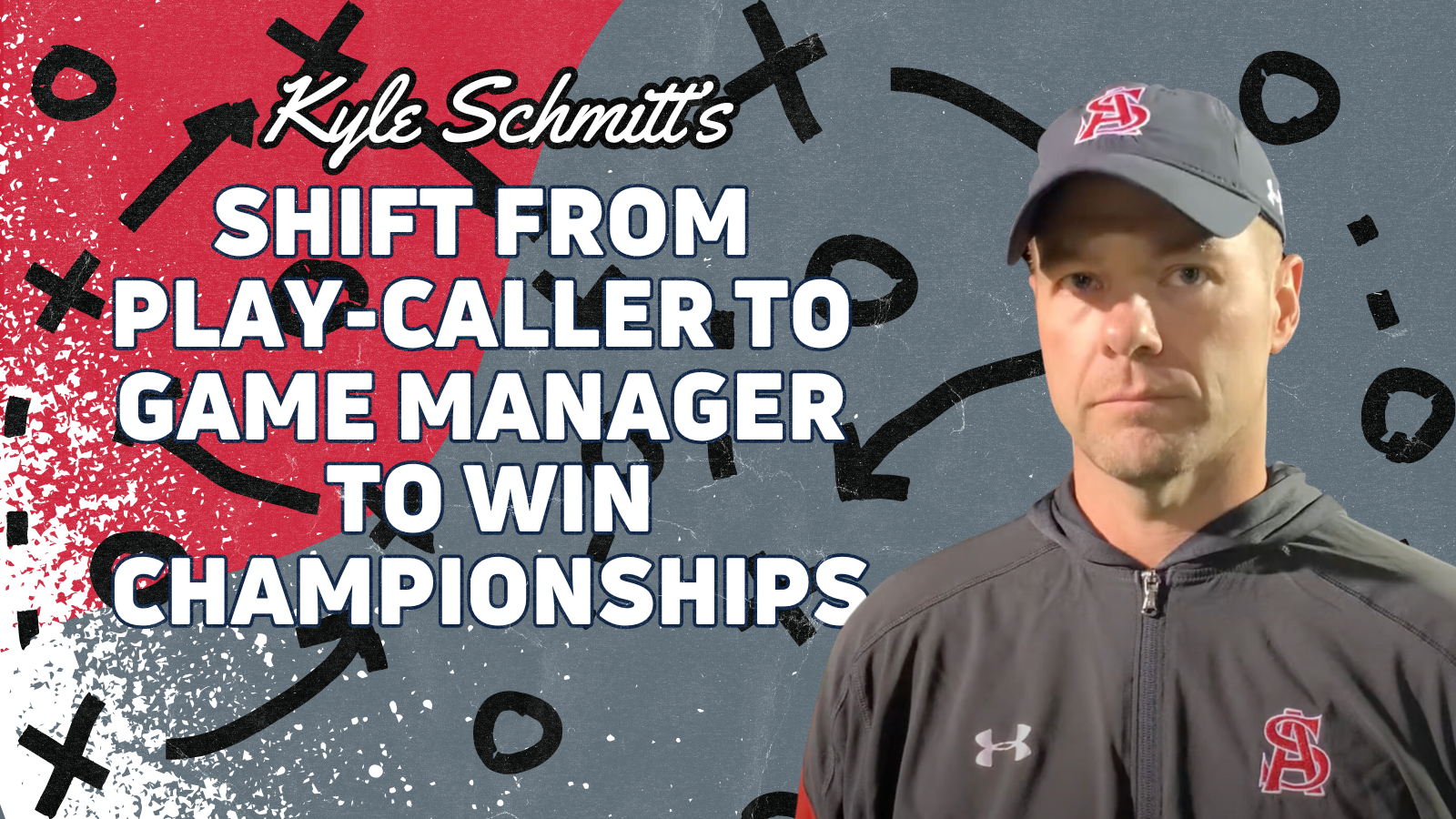
With back-to-back state championships, Kyle Schmitt, the head coach at Archbishop Spalding High School in Maryland, has proven that effective game management is as important as the talent on the field. Like all coaches, he valued his role as a player caller, but a shift in perspective as a head coach, he recognized the need for change. His reflection and study of himself and the game led to new strategies to help him bring his team at the top. For Coach Schmitt, it was taking a step back and realizing his role in what he felt was holding his team back.
Realization of the Need for Change
Every great coach has a moment of introspection, a time when they realize that something needs to change. For Kyle Schmitt, this moment came after years of success as a play-caller, but with a nagging sense that something was missing. The COVID-19 pandemic provided a unique opportunity for reflection. With the season disrupted and time to think, Schmitt began to analyze his approach. He realized that while his abiility as a play caller was effective, it wasn’t enough to push his team over the top.
Schmitt’s self-reflection led him to an important conclusion. To be a successful head coach, he needed to step back from the play-calling role he loved and take a more holistic view of his team. This wasn’t about abandoning what had worked in the past but rather about expanding his focus to include aspects of the game that he had previously overlooked.
Embracing Special Teams
Stepping back from that role allowed him to explore new opportiunities to impact his team. A significant change Schmitt made was fully immersing himself in special teams. Though he preached the importance of Special teams, they were often an afterthought in his earlier years as a head coach. As Schmitt began to analyze past seasons, he noticed a pattern—many of the games his team lost were due to small mistakes in special teams play. These were games where a missed field goal, a blocked punt, or a poor kickoff coverage led to losses that could have been wins.
Schmitt decided to become the special teams coordinator, overseeing the design of every drill and strategy himself. He realized that special teams could make the difference between runner-up and champion. With his focus on teams, the Cavaliers started taking care of the details that were missing in the past.

Learn More about Signature Championship Rings: Signature Championship Rings is a leading designer and supplier of championship rings, serving over 10,000 teas and organizations. With a focus on quality craftsmanship, easy team ordering processes, and affordability, Signature Champions celebrate every champion and their achievements, making their moment last a lifetime. For more information, visit www.signaturechampions.com/podcast
Learn More about Signature Championship Rings:Signature Championship Rings is a leading designer and supplier of championship rings, serving over 10,000 teams and organizations. With a focus on quality craftsmanship, easy team ordering processes, and affordability, Signature Champions celebrate every champion and their achievements, making their moment last a lifetime. For more information, visit www.signaturechampions.com/podcast.
Learn More about Signature Championship Rings: Signature Championship Rings is a leading designer and supplier of championship rings, serving over 10,000 teams and organizations. With a focus on quality craftsmanship, easy team ordering processes, and affordability, Signature Champions celebrate every champion and their achievements, making their moment last a lifetime. For more information, visit www.signaturechampions.com/podcast.
Strategic Game Management
Another lesson Schmitt learned during this journey of relfection was the importance of strategic game management. While a great head coach must have deep knowledge of X’s and O’s, what makes the schemes work is an understanding the flow of the game, making quick decisions, and being prepared for any situation. His shift in perspective allowed him to approach to game management with the passion and detail he used to put into play calling.
He focused mainly on “must-have plays,” critical plays designed for high-pressure situations like third-and-short, goal-line, and two-point conversions. Winning these situations are about putting the best players in positions to succeed, regardless of what the opponent throws at them. Schmitt’s mantra of “think players, not plays” became a big part of the strategy built to handle situational football.

Utilizing Analytics and Tools
Technology and analytics are revolutionizing how the game is coached and managed and are becoming an integral part of the game. Schmitt is no exception and has embraced these tools to gain a competitive edge.
Schmitt doesn’t rely solely on numbers. For him it’s still about exploring ideas and seeing how those fit into the Cavaliers’ systems. He values studying film, not just of his team but of others. Using tools like Screencastify, Schmitt captures and analyzes game situations from every level of the game, using them as teaching moments for his team. Schmitt believes in learning from every possible scenario, whether it’s a perfectly executed onside kick or a smart timeout call. Schmitt believes the best way to engrain the understanding in players is to show those situations and how they were handled effectively. For example, showing a sideline straddle on a kick-off is something his players can see and understand and be ready to execute when they happen.
By combining instincts with analytics, Schmitt has developed a game management style that is both proactive and reactive. He always anticipates the next move while being ready to adapt to whatever the game throws his way.
Kyle Schmitt’s success at Archbishop Spalding is a testament to his willingness to evolve as a coach. Schmitt has turned a strong program into a state championship program by shifting his perspective and embracing a more comprehensive approach to game management. His focus on special teams, strategic game management, and the utilization of analytics has provided a blueprint to take his team to the next level.
In the end, Schmitt’s journey reminds us that coaching is about more than just calling plays—it’s about designing a winning culture, stepping back when necessary, and always striving to be better.
About Coach Schmitt
Coach Schmitt is in his fifth year at Spalding and has a record of 32-4, including back-to-back MIAA state championships in 2023 and 2024. He was named the Baltimore Ravens High School Coach of the Year in 2022. He is our Week 1 Coach and Coordinator National Coach of the Week.


